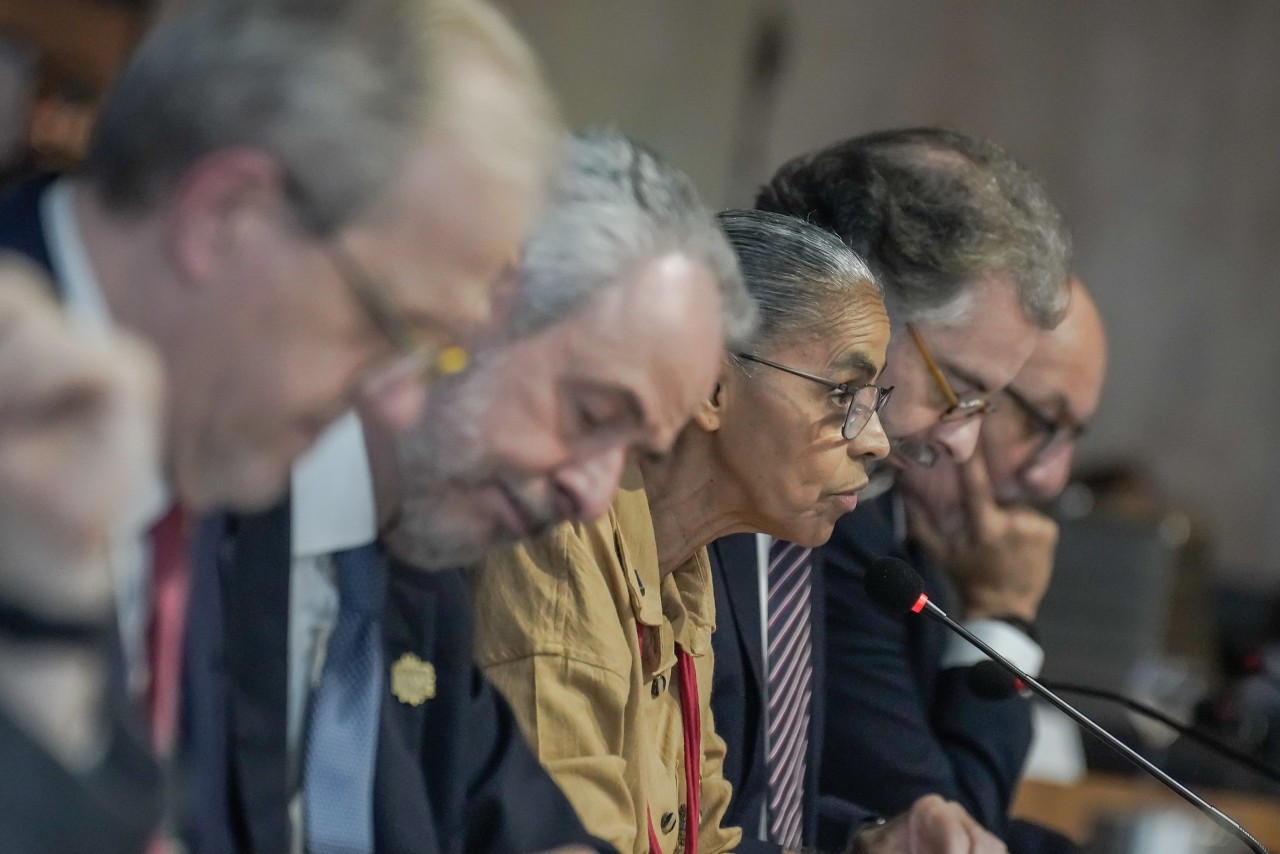Marina Silva Highlights Climate Finance and International Governance as Central Pillars on the Road to COP30
With a focus on advancing the implementation of climate agreements, Brazil’s Minister of Environment and Climate Change emphasized during the Pre-COP the urgent need to scale up financing for nature, strengthen the bioeconomy, and integrate ocean-related discussions into the broader climate agenda.

By Rafaela Ferreira/COP30
During the Pre-COP, which began on Monday, October 13, participants underscored the importance of scaling up nature-based financing as a means of fulfilling climate commitments. Brazil’s Minister of the Environment and Climate Change, Marina Silva, emphasized the need to strengthen implementation mechanisms through the mobilization of financial resources and the provision of positive incentives.
“At COP28 in Dubai, in 2023, several important agreements were reached. Thanks to the first Global Stocktake, it became evident that current efforts to reduce CO₂ emissions remain insufficient. For the first time, countries were called upon to undertake a just and planned transition away from fossil fuels and deforestation. To achieve this, it is essential to reinforce implementation pathways by mobilizing financial resources, enhancing positive incentives, and developing innovative instruments,” she stated.
On that occasion, the Minister also reiterated the urgency of mobilizing resources for the Tropical Forests Forever Fund (TFFF). The initiative proposes payments to countries that ensure the conservation of tropical forests and aims to address a critical gap in funding for their protection.
“It is estimated that US$282 billion per year is needed to protect forests, yet currently only one quarter of that amount is available. To close this gap, we must mobilize a set of concrete actions for nature-based finance. The Tropical Forests Forever Fund (TFFF) is one such initiative,” she emphasized.
Led by 12 nations, the fund has the potential to benefit over 70 developing countries with tropical forests and become one of the largest multilateral instruments ever established. “This is not about donations—it is about investment. The TFFF aims to ensure sustained financial flows to protect nature and compensate for ecosystem services, recognizing the vital role of Indigenous peoples and local communities. Once operational, it could generate up to US$4 billion annually—nearly three times the current volume of international forest finance.”
Bioeconomy
Marina Silva, Brazil’s Minister of the Environment and Climate Change, also highlighted bioeconomy incentives during her remarks. She stressed the importance of investing in the bioeconomy, as well as in the conservation and sustainable use of standing forests.
“The ten G20 bioeconomy principles, adopted under Brazil’s presidency, outline the contours of the new economy we must build—regenerative, inclusive, and sustainable—ushering in a new cycle of prosperity. Each country, according to its national circumstances and particularities, may follow its own path, but all must move forward based on international cooperation, solidarity, science, and ethics,” she affirmed.
Ocean
Silva also drew attention to the imbalance in funding allocated to marine conservation. Currently, resources amount to approximately US$1.2 billion per year, while an estimated US$16 billion is needed. She emphasized that ocean protection is an inseparable part of the climate agenda and that Nationally Determined Contributions (NDCs) must also include targets related to the marine environment.
Concluding her remarks, the Minister underscored the urgency of a global mobilization in defense of nature. According to her, only a collective effort—a mutirão for nature, for forests, and for the ocean—will be capable of turning ideas into impact, vision into action, and decisions into tangible results for the planet.
Translation: Michel Emmanuel Félix François (POET/UFC)
Proofreading: Tadeu Azevedo (POET/UFC)
